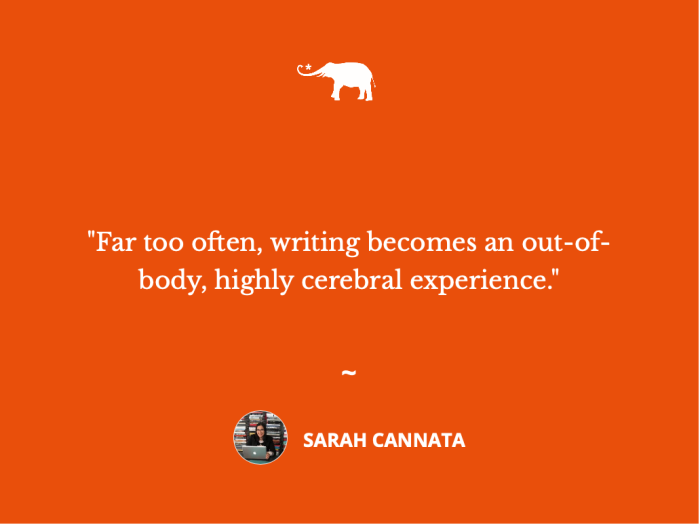Thanks largely to high-profile, well-credentialed people like Dr Nicole LePera and Dr Gabor Maté, trauma is being discussed in the mainstream more than ever before. Personally, I subscribe to Dr Maté’s definition of trauma:
“Trauma is not what happens to you; it’s what happens inside you as a result of what happened to you.”
If we think of trauma this way, we can quickly see how trauma is part of the human experience and how we all have trauma on a spectrum. We can also see how highly subjective trauma is. What may be traumatic to one person may not even warrant a second thought for another individual.
Writing is one of the most under-utilized healing tools available to us on a 24/7 basis
In a world that is thirsty for quick fixes and overnight hacks and tricks, I can see why some people wouldn’t even consider writing to be a healing tool. Sure, writing may not be everyone’s cup of tea and may not be a go-to healing tool for certain people, but its benefits are backed by robust research.
Way back in 1986, James Pennebaker became the first researcher to study the therapeutic effects of writing using expressive writing. The study was straightforward: participants wrote continuously for 15 minutes a day over four days. While the control group were tasked with writing objectively about superficial topics, the experimental group wrote about the most traumatic experiences of their lives. Pennebaker and his team then tracked several measurements and found that relative to the control group, the experimental group made fewer visits to their doctor in the following months.
Since this groundbreaking research in the 1980s, numerous studies have proven the many benefits of writing. You’re only a few seconds away from endless search results with a quick Google search.
How we approach writing is as important as the act of writing itself
Predictably, as a writer, I’m not someone who needs research to validate the benefits of writing. I’m not a doctor, therapist or any other healthcare provider. I’m someone with lived experience who has used writing to navigate my way out of several sticky situations in life. I’ve been writing my entire life. Lots has changed throughout my lifetime, but writing has been a constant.
In 2022, I earned a trauma-informed certificate for coaches, and the training blew my mind. It introduced me to trauma, the nervous system and a whole new world. So much so that a taste of this information was not enough. I enrolled to become a certified Embodied Processing Practitioner, which I became in 2022. Embodied processing is a bottom-up approach to working with trauma. Before this training, my experience facilitating healing through writing sessions for clients proved to me writing was healing beyond my own lived experience. However, learning about the autonomic nervous system and trauma took my understanding to a whole new level and enabled me to improve my offerings through what I call embodied writing.
The basics of embodied writing
When someone has past trauma, we don’t want to re-traumatise them, even unintentionally. I’ve heard trauma professionals speak about how talk therapy (which I value as a modality and definitely believe has its place) has the potential to re-traumatise people because they are essentially re-hashing and re-experiencing painful memories. As trauma occurs in the body, it must also be processed in the body. Writing is similar from what I have seen and my own lived experience. If we are re-hashing and re-experiencing painful memories through our writing, it’s not necessarily helping us to process the emotions and feelings we need to. That’s why cultivating safety through a resource is essential to the embodied writing process. A resource is a container that helps us to grow our capacity over time – if words such as safety, stability and support don’t resonate, think of the opposite of overwhelm. If we are triggered when writing, we can return to our resource and avoid re-traumatising ourselves.
Far too often, writing becomes an out-of-body, highly cerebral experience. When I think of how I’ve been guided to journal or keep a diary in the past, at some point, it becomes a brain dump. I dump what’s on my mind onto the blank page, and that’s my writing session done. I sometimes can’t even recall what I have written, if I’m honest. The approach to embodied writing is the opposite. We are aiming to shift our awareness from our mind to notice what’s taking place in the physical body as we write. We’re leaning into our curiosity and drawing on our body’s wisdom. We’re paying attention to things like:
- My heartbeat steadily increases when I write about a particular topic
- My breathing becomes shallow as I touch on certain words
- My body feels lighter as I continue writing
Writing our next chapters collectively
Post-pandemic, the world is in an interesting place. The only certainty is change. We live in a modern world that never sleeps and demands more of us at each moment. What faces us individually and as a collective will not be easy. I truly believe in the power of writing as a healing tool. The next time you face a challenge, or are filled with anxiety, grab a piece of paper and a pen (or something to type with) and see what happens. And if you need a writing prompt to get you started, try this:
- What is my body trying to tell me right now?












Read 0 comments and reply